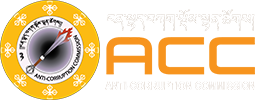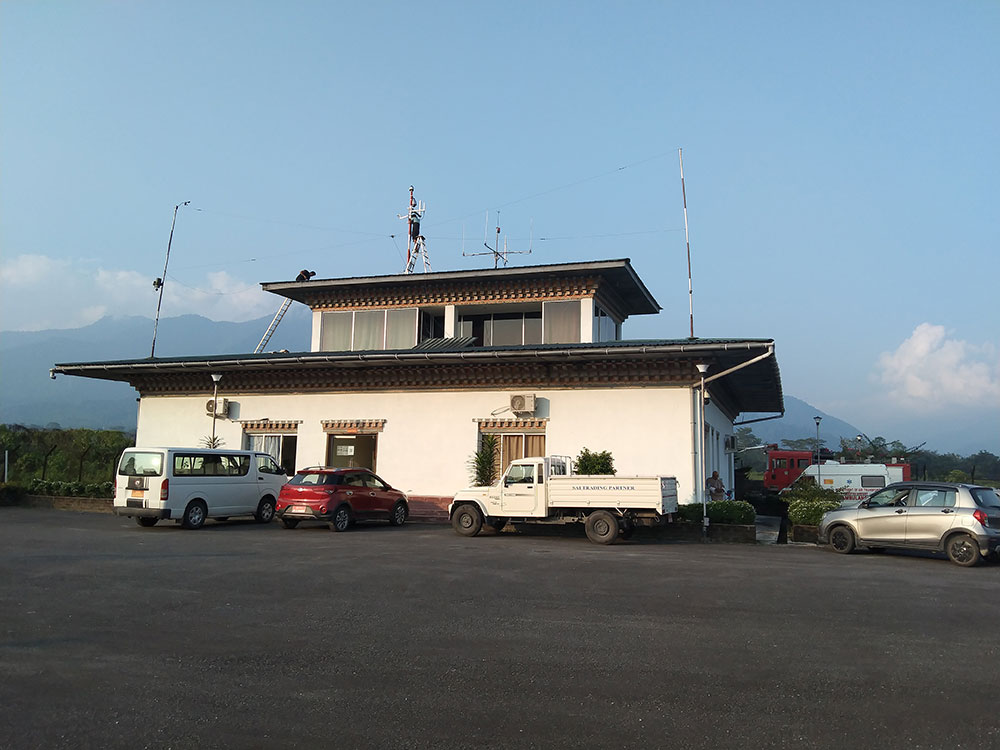The Commission initiated investigation into suspected fraud and collusion in the construction of Gelephu Domestic Airport. In 2013, RAA referred this matter highlighting suspicion of fraud and collusion in relation to tendering of Gelephu Domestic Airport. One of the irregularities on which the RAA invited the attention of the Commission pertained to suspected collusion surrounding the estimation and measurement adopted by the government engineer in relation to supplying, fixing and laying of concertina wire over the 2206.66 m perimeter wall. An excess payment of Nu. 21.177 million was paid to the contractor on supply and installation of concertina wire. The payment was made on circumferential length at Nu. 411 (after rebate) when it should have been based on the wall length. The tender specification was drawn by the government engineer of the Department of Civil Aviation (DCA). At around the same time, ACC also received an allegation that the same engineer was bribed Nu.1.500 million by the contractor. The amount was allegedly paid in two installments and it was booked under proprietor’s advance.
Although there was no evidence to prove that the engineer transmitted privileged information to the contractor at the time of the bid preparation, evidence showed that he did know about the market price of concertina wire at the time of preparing the cost estimate contrary to his claim that he did not make effort to conduct price inquiry. Despite his knowledge that concertina wire cost only Nu.75.00 per meter, he had used estimate Nu.450.00 per meter as per BSR 2009 which lacked clarity. The investigation revealed that sometime in early July 2011, a month after the project started, the contractor paid Nu.1,500,000 through his late Finance Officer. Around the same time, the engineer purchased one second-hand Hyundai vehicle costing Nu.850,000. Few months later, he also bought a plot of land at Zomlingthang, Gelephu for Nu.1.350 million. The investigation revealed that sometime in December 2011 the engineer had certified payment of a forged invoice of M/s Global Trader, Kolkata for purchase of concertina wire at an inflated rate of Rs. 200.00 per meter. In reality, the contractor bought this material from another manufacturer M/s Shiva Engineering Co Pvt Ltd, Kolkata at Rs. 5.95 per meter. The forged invoice was passed with an intent to advantage the contractor in obtaining Nu.6.619 million secured advances when the contractor would have been otherwise entitled to claim only Nu. 196,944.85. Evidence proves that the engineer, at the time of certifying this forged invoice, had prior knowledge that the wire should have come from M/s Shiva Engineering Co Pvt Ltd not from M/s Global Traders. Further, the investigation also learned the project was fraught with many irregularities as per the findings of the RAA and the engineer was held directly accountable for the several lapses.
The investigation also revealed that the contractor had wilfully evaded Corporate Income Tax through manipulation of certain expenses during the tax filing for the year 2012. It transpired that prior to filing tax returns that the contractor engaged his staff (including some already resigned) to fabricate a series of muster roll sheets and falsely expensed Nu. 41.302 million to circumvent the statutory tax. All personal drawings from the business account by the proprietor were expensed by adjusting with fictitious muster roll payments. This fraud was carried out with the help of one local accounting firm who was hired to compile and consolidate financial statements for tax filing purposes. In addition to the fictitious muster roll expense, another Nu.15.957 million was charged in the final income statement on account of iron and steel without any supporting document. These fictitious expenses reduced the company’s taxable income by Nu. 56.732 million depriving the government of Nu. 10.099 million in tax revenue.
The Commission referred the case to OAG for prosecution on 29 June 2018.
Complaints Management (attach the flowchart,report corruption online, link myACC app)
- The Complaints Management Division will receive the complaint either through webmail, social media(Wechat and Whatsapp),post, telephone or walk-in.
- The complaint will be assigned with a registration number and then registered in the Complaint and Investigation Management System (CIMS).
- The complaint will be assigned to a Complaint Management Officer for review, enrichment and appraisal to Complaint Evaluation Committee (CEC) and the Commission (CM).
- During the appraisal, those complaints that are pursuable for corruption offences, will be evaluated using System-based P-Value scoring as well as the judgement of the members. If the P-value score is more than 30 points(out of total score of 50), the complaint qualifies for investigation. However, in some cases, even when the P-value score is less than 30, the complaint gets qualified for investigation provided there is a strong justification based on facts and figures of the complaint for investigation by the member of CEC or CM.
- On completion of the evaluation process starting with P-Value scoring followed by CEC recommendation and then Commission decision, further actions on complaints are classified into four categories viz. (i) Investigate, (ii) Information Enrichment, (iii) Share with agencies, and (iv) Drop:
-Complaints qualified for investigation will be forwarded to the Department of Investigation.
-Information Enrichment on complaints will be undertaken to enrich information and/or authenticate its reliability prior to making any decision on further actions on complaints. It will determine whether there are sufficient grounds to investigate a suspected or alleged corruption offence.
-The Commission will share complaints of administrative nature with agencies for sensitization or action. Such complaints are normally on administrative lapses in areas of management, policies, procedures, enforcement of rules and regulations, etc. When such complaints are shared with agencies for actions, agencies are required to submit their enquiry and Action Taken Reports to the Commission within thirty days.
-Complaints that either contain general or unsubstantiated allegations or lack corruption element will be dropped. Such complaints through dropped shall remain in CIMS database for future reference, if required.

